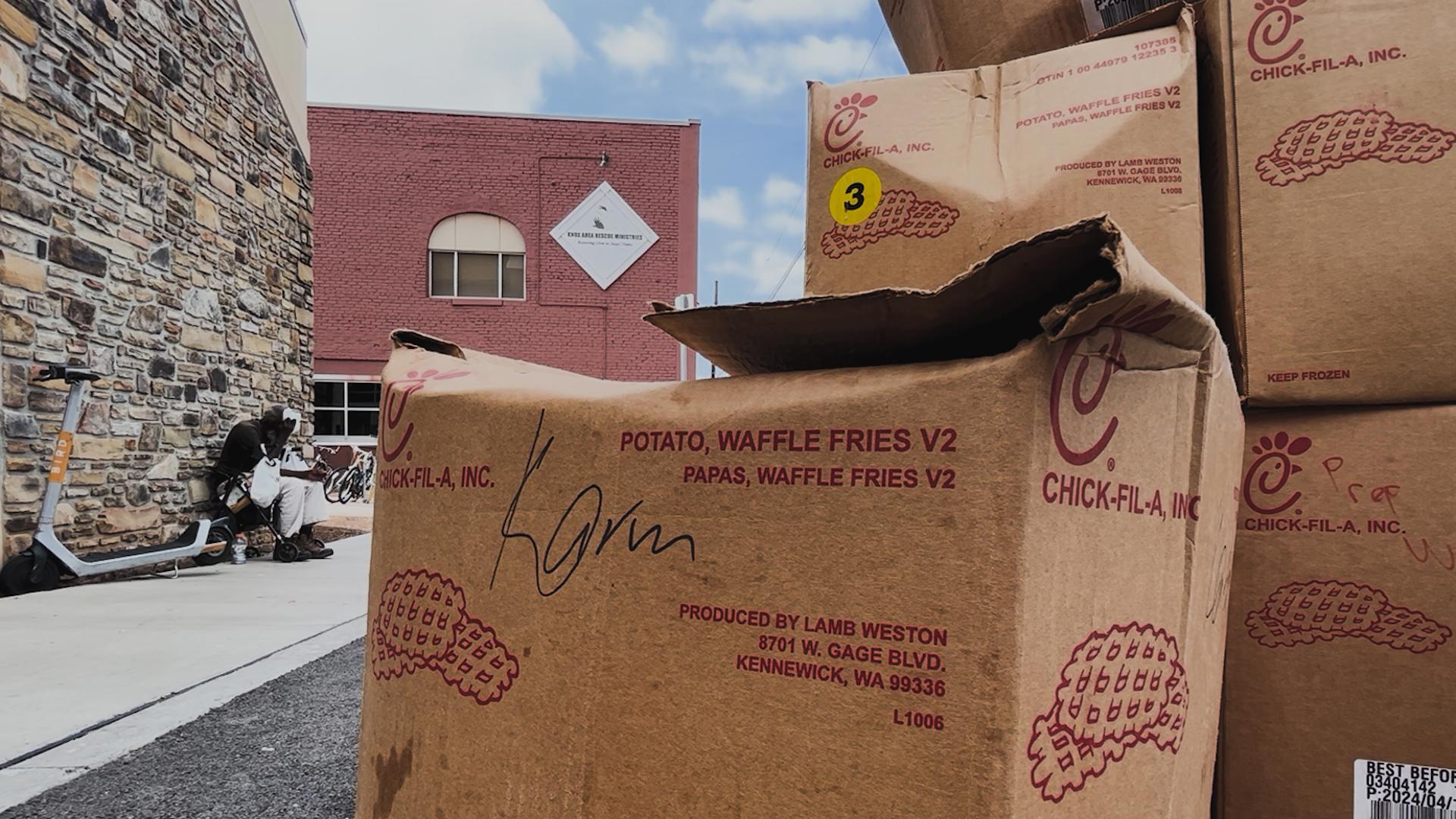KNOXVILLE, Tenn. — Food goes to waste across the U.S., ending up in trash bags as workers at restaurants clean and close their stores for the night. Around 40% of food goes to waste in the U.S., according to the Tennessee Department of Environment and Conservation.
Decisionmakers may throw it away because they may not know what to do with it. Restaurants may not have plans for keeping food after closing, and grocery stores may need to dispose of old food due to health concerns — or for their own standards.
Meanwhile, at least one Tennessean out of every seven faces food insecurity.
"I knew there was a need, and it really bothered me that I was putting food in the trash can while other people were being hungry," said Marshall Wilkins, who formerly owned a Chick-fil-A restaurant near the East Towne Mall and still owns other locations. "It is kind of a 'duh.' You're throwing food in a trash can, and there's someone hungry. Get it together. Why throw food away when someone needs that food? It's that simple.”
In the early 1990s, Wilkins decided he couldn't let food from his restaurant go to waste. Based on that idea, he began donating leftovers to Knox Area Rescue Ministries
“Sometimes you just got to do what’s right and live possibly with the consequences," Wilkins said.
Now, KARM spreads donated leftovers across the community through a network of informal relationships.
"It takes a village, right? That's the thing. It takes a village. So, it truly is, 'Well, who needs what?'" said Faith Cline.
An empty truck starts its day at KARM in downtown Knoxville at around 7 a.m. — just as the world is waking up — to start collecting food. It drives across the area, stopping at around 20 restaurants and picking up excess food before bringing it back to the nonprofit.
Along the way, the truck stops at Chick-fil-A. Because of Wilkins' idea, the fast food chain has played a significant role in developing food donation programs to address food insecurity on a national scale.
In 2011, the U.S. Congress passed tax benefits designed to incentivize businesses to donate food. It expanded those benefits in 2015, hoping to incentivize more businesses to donate food. At around the same time, the Chick-fil-A corporation discovered Wilkin's food donation efforts and spread it to around 2,000 locations nationwide.
Chick-fil-A gave it the name, "The Shared Table" program.
It estimates the program has served more than 21 million meals across the U.S. In Knoxville, KARM alone serves around 1,000 people per day — guests who eat some of the repurposed chicken from Chick-fil-A. Chefs at KARM and nonprofits like Love Kitchen use the donated food to craft enticing meals.
"It's like a big episode of Chopped, really. Our chefs come in and they kind of see what was donated the day before, and, 'What have I got to work with, and what can I make out of it?'" said Liz Galloway, from KARM.
The menu can include a variety of soups, chicken enchiladas, white chicken chili, chicken pot pie, chicken and gravy, fettuccine alfredo with chicken, chicken barbecue, lamb pasta, cheeseburger, casserole and spaghetti.
"Everybody deserves good food, and it's not enough just to send out the bare minimum. You know, if I wouldn't serve it to my family, then I'm not serving it to someone else," said Cline. "If a meal is the highlight of their day, there's really, like, there's no better feeling. You're helping, we are helping people that have nobody else."

